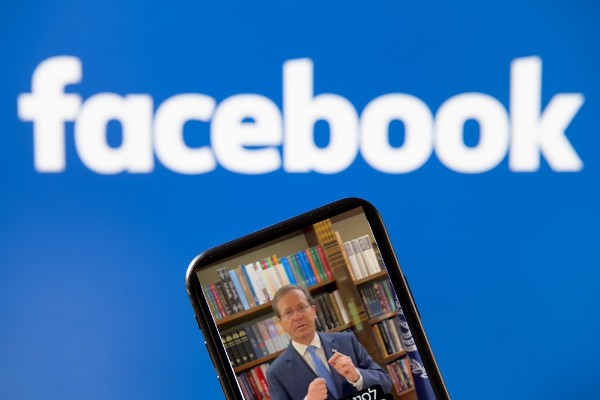Campaign aims to end “keyboard violence” and cyberbullying.
By Pesach Benson, United With Israel
Israeli President Isaac Herzog and Facebook’s parent company, Meta, launched a campaign on Tuesday to combat cyberbullying and cool down inflammatory discourse on social media.
The campaign aims to raise public awareness about the impact of online bullying and “encourage a more conciliatory and inclusive discourse on social media instead of hurtful rhetoric,” a statement issued by Herzog’s office said.
The “Think Good” campaign will bring together Israeli celebrities and officials in brief video clips reading hurtful social media posts about themselves. But in a twist, the offensive words will be replaced by positive language. Notables include singer Anna Zak, judoka Peter Paltchik, and Arab Israeli journalist Mohammad Magadli.
The campaign has the backing of Prime Minister Naftali Bennett, Foreign Minister Yair Lapid, Interior Minister Ayelet Shaked, and Likud MKs Miri Regev and Miki Zohar among others political leaders.
“We have to change this extreme and violent discourse. This change begins with the keyboards and smartphones of each and every one of us,” Herzog wrote in a commentary published in a number of Israeli newspapers and websites.
“Just before sending out another insulting reply, simply because we can, and just before we use our words to sully or trample on people who see things differently from us, we have to stop, take a deep breath, and remember: foul language and hurtful words never do any good. They only cause harm.”
The president stressed that provocative words “harm not only the individuals we attack. First and foremost, they harm all of us: they harm our society, and our ability to live here together and build a shared future together. This is the first necessary step: to put an end to keyboard violence.”
Think Good is targeting both youth and adults.
Cyber bullies have been known to victimize teens by threatening to post embarrassing or sensitive information or videos. By using fake social media accounts, bullies can anonymously target individuals, leading victims to depression and even suicide.
The campaign is as necessary a mea culpa for Facebook as it is for the millions of people who use it and other social media platforms and messaging systems such as Twitter, YouTube, TikTok, Telegram, Instagram and WhatsApp. The latter two are owned by Facebook’s parent company, Meta.
Whistleblower Frances Haugen disclosed in October that Facebook gamed its algorithm to boost posts that prompted angry and emotional reactions because they improved user engagement — and also Facebook’s bottom line. The Washington Post reported that Facebook’s number crunchers confirmed as far back as 2019 that posts triggering angry reaction emojis “were disproportionately likely to include misinformation, toxicity and low-quality news.”
That would explain why Israeli experts are examining how to regulate Facebook and other social media platforms, and make them more accountable.
But Herzog is emphasizing that we must make ourselves accountable too.
“If we change the atmosphere, if we lift others a little more, every one of us, if we see the good, are generous with praise, if we can be a light unto others, I’m certain that together we can forge a more pleasant public space conducive to improving our shared lives here in this beautiful country,” the president wrote. “In the words of Jerusalemite poet Yehuda Amichai: ‘In this burning land, words must provide shade.’”
